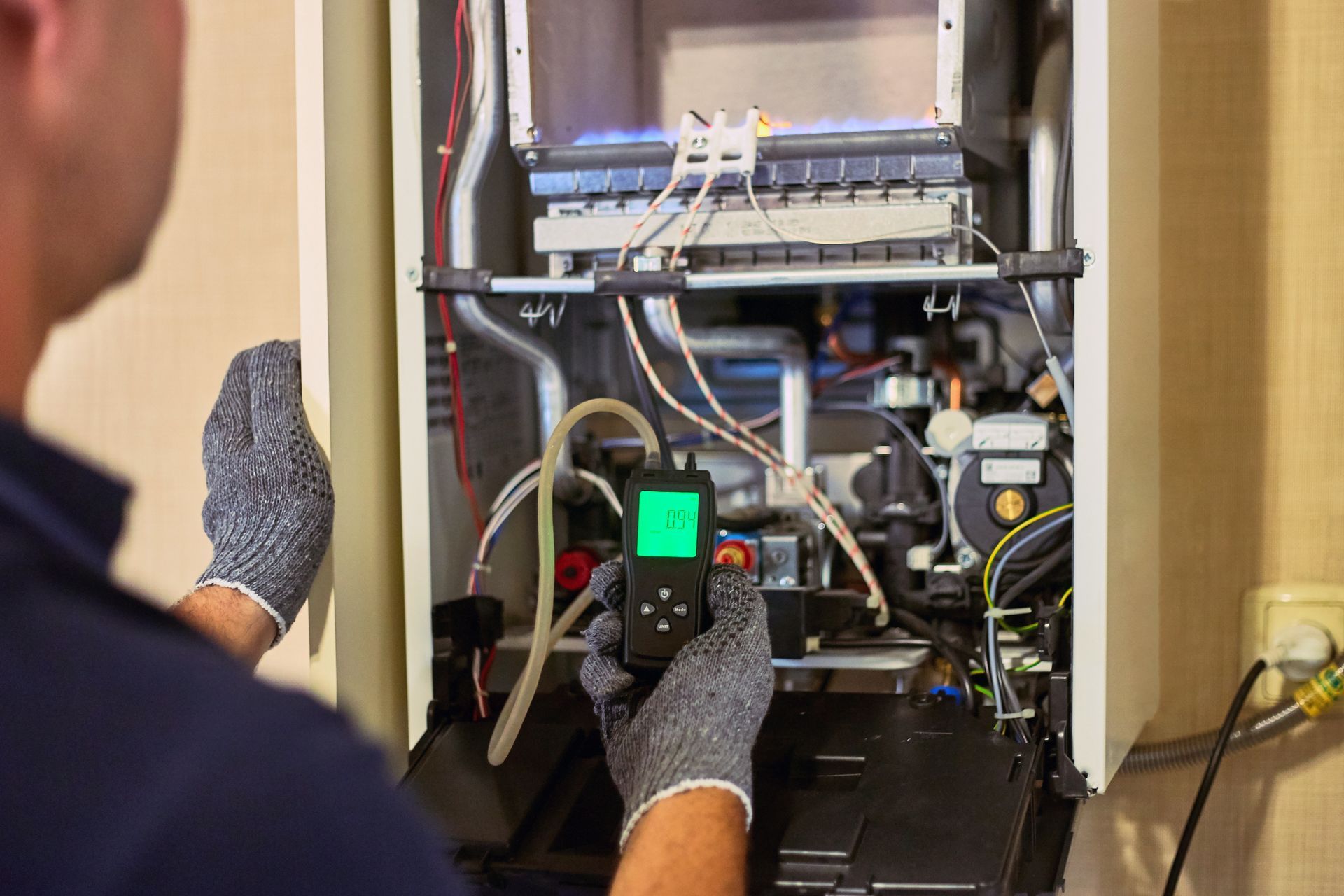Tankless Water Heaters

The Benefits of Tankless Water Heaters:
In recent years, tankless water heaters have gained popularity among homeowners seeking efficient and reliable hot water solutions. Unlike traditional tank water heaters that store hot water, tankless models heat water on demand.
What is a Tankless Water Heater?
A tankless water heater, also known as an on-demand water heater, heats water directly without the use of a storage tank. When you turn on a hot water tap, cold water travels through a pipe into the unit, where it’s heated by either a gas burner or an electric element. The result is a continuous supply of hot water.
Key Benefits
1. Energy Efficiency:
Tankless water heaters are more energy-efficient than traditional models. Since they only heat water as needed, there’s no energy wasted maintaining a reservoir of hot water. This can lead to lower utility bills and a reduced carbon footprint.
2. Endless Hot Water:
With a tankless system, you’ll never run out of hot water during a shower or while doing laundry. This is especially beneficial for larger families or households with high hot water demands.
3. Space-Saving Design:
Tankless heaters are compact and can be installed in smaller spaces, such as closets or even mounted on walls. This frees up valuable floor space in your home.
4. Longer Lifespan:
Tankless water heaters typically last longer than traditional models, often exceeding 20 years with proper maintenance. This can make them a more cost-effective choice in the long run.
5. Lower Risk of Water Damage:
Without a large tank, there’s less risk of leaks and water damage. This can give homeowners peace of mind, particularly in attics or areas where a leak could cause significant damage.
Installation Considerations
While tankless water heaters offer many advantages, they also come with specific installation requirements:
Sizing: Choosing the right size is crucial. Units are rated by the flow rate (measured in gallons per minute) and temperature rise. Ensure the unit can handle your household’s peak demand.
Fuel Source: Tankless heaters can be powered by gas or electricity. Consider your existing system and energy costs when choosing.
Ventilation: Gas models require proper ventilation to prevent the buildup of carbon monoxide. This may require additional installation considerations.
Upfront Costs: Tankless units can have a higher initial purchase and installation cost compared to traditional models. However, the long-term savings can offset this initial investment.
Maintenance Tips
To ensure your tankless water heater operates efficiently:
Descaling: Hard water can cause mineral buildup in the unit. Regular descaling (usually once a year) is necessary to maintain efficiency and extend the lifespan.
Routine Checkups: Schedule annual maintenance checks to ensure all components are functioning correctly.
Filter Replacement: If your unit has a water filter, replace it regularly to maintain optimal performance.









